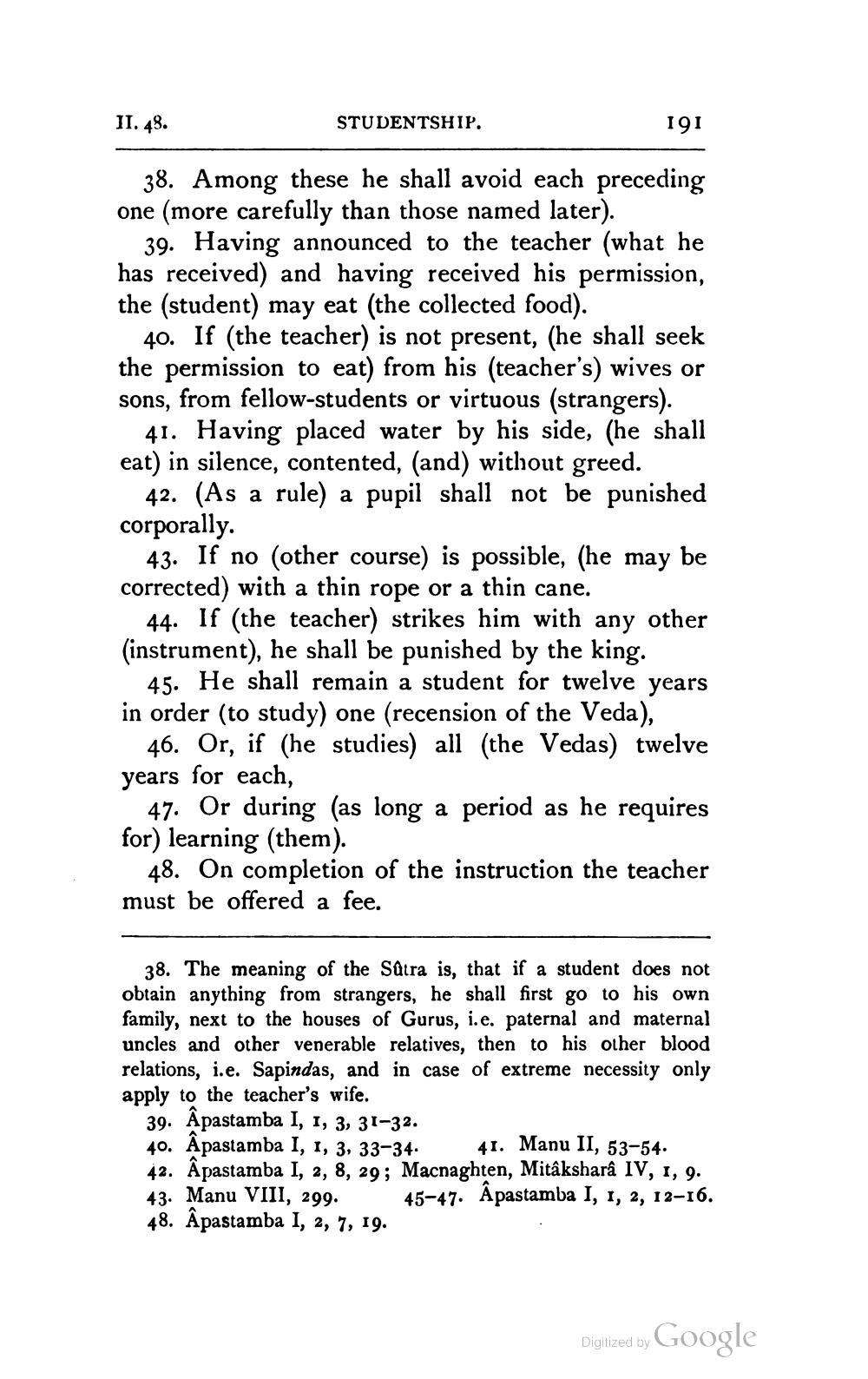________________
II. 48.
STUDENTSHIP.
191
38. Among these he shall avoid each preceding one (more carefully than those named later).
39. Having announced to the teacher (what he has received) and having received his permission, the (student) may eat (the collected food).
40. If (the teacher) is not present, (he shall seek the permission to eat) from his (teacher's) wives or sons, from fellow-students or virtuous (strangers).
41. Having placed water by his side, (he shall eat) in silence, contented, (and) without greed.
42. (As a rule) a pupil shall not be punished corporally.
43. If no other course) is possible, (he may be corrected) with a thin rope or a thin cane.
44. If (the teacher) strikes him with any other (instrument), he shall be punished by the king.
45. He shall remain a student for twelve years in order (to study) one (recension of the Veda),
46. Or, if (he studies) all (the Vedas) twelve years for each,
47. Or during (as long a period as he requires for) learning (them).
48. On completion of the instruction the teacher must be offered a fee.
38. The meaning of the Satra is, that if a student does not obtain anything from strangers, he shall first go to his own family, next to the houses of Gurus, i.e. paternal and maternal uncles and other venerable relatives, then to his other blood relations, i.e. Sapindas, and in case of extreme necessity only apply to the teacher's wife.
39. Âpastamba I, 1, 3, 31-32. 40. Apastamba I, 1, 3, 33-34. 41. Manu II, 53-54.
Âpastamba I, 2, 8, 29; Macnaghten, Mitâksharâ IV, 1, 9. 43. Manu VIII, 299. 45-47. Âpastamba I, 1, 2, 12-16. 48. Âpastamba I, 2, 7, 19.
Digitized by Google




